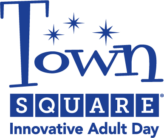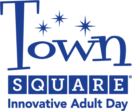Senior Care Made Easy: Harnessing the Power of Your Loved Ones’ Pharmacist for Better Health
At Town Square Northwest Austin, we understand just how crucial a role pharmacists play on your loved one’s healthcare team. As caregivers ourselves, we’ve seen firsthand the incredible impact a fantastic pharmacist can have on the lives of older adults. Building a strong bond with your pharmacist can make all the difference. When you connect with a pharmacist regularly, they get to know your unique needs and circumstances, allowing them to offer consistent care and keep potential drug-related issues at bay.
 Building a Stronger Healthcare Team
Building a Stronger Healthcare Team Pharmacists are not just dispensers of medications; they are essential members of a larger interdisciplinary healthcare team dedicated to your loved one’s well-being AND are often the most accessible member of your healthcare team! Working hand-in-hand with other healthcare professionals, pharmacists provide valuable insights and recommendations on various aspects, including dosing, adverse drug reactions, treatment guidelines, and more. This collaborative approach ensures that you and your loved one receive comprehensive care tailored to your unique needs.
- Dosing and Administration: Pharmacists collaborate with caregivers and seniors to ensure precise dosing and proper administration of medications. By considering age, weight, and health conditions, pharmacists provide tailored dosing instructions, reducing the risk of under or overmedication and promoting treatment effectiveness.
- Adverse Drug Reactions: Pharmacists vigilantly monitor seniors’ medications for potential adverse reactions or interactions with other drugs, supplements, or food. By identifying and addressing these risks, they help prevent possible health complications and ensure the overall safety and well-being of the senior.
- Intravenous Drug Compatibility: When intravenous medications are necessary, pharmacists play a crucial role in assessing the compatibility of various drugs to avoid harmful reactions. Their expertise ensures the safe administration of intravenous treatments and minimizes any risks associated with drug interactions.
- Drug Monitoring, Guidelines for Treatment, and Approved and Off-label Indications: Pharmacists keep a close eye on the effectiveness of medications for seniors and provide timely feedback to caregivers and healthcare teams. They also offer guidance on treatment guidelines and the appropriate use of approved and off-label medications, helping caregivers make informed decisions about their loved ones’ healthcare.
5 Extraordinary Ways You Can Utilize Your Pharmacist for Better Health Outcomes
Medication Use and Adherence Made Easy: As medications become more complex, it’s essential for seniors to understand how to take them correctly. Pharmacists excel in patient education, especially regarding medications that require specific instructions, like injectables, drops, inhalers, or patches. By having a dedicated pharmacist, your loved one gains access to consistent guidance, reducing the risk of drug-related issues and improving adherence.
Streamlined Medication Management: Juggling multiple prescription medications can be overwhelming, but pharmacists are skilled in simplifying this process. With an average of 14 to 18 prescription medications for adults over 65, having a pharmacist on your caregiving team becomes invaluable. They foster open communication between the patient, doctor, and caregiver, helping manage medications effectively and ensuring your loved one’s safety.
Tailored Care for Individual Needs: At our Adult Day Care Center, we understand that each senior has unique requirements. Pharmacists can provide personalized care by making medications more accessible and user-friendly. Whether it’s easy-open bottles, large-print labels, or medication instructions in the patient’s native language, pharmacists go the extra mile to ensure your loved one’s comfort and understanding.
Knowledge Hub for Patients and Families: Pharmacists are excellent sources of information, not only on drug interactions and side effects but also on practical tools that promote medication adherence. From drug calendar reminders to dispensing devices and pill crushers, these resources can be game-changers, saving time and reducing frustration for seniors and caregivers.
Empowering Positive Health Outcomes: The impact of pharmacists extends beyond medication management. By assisting with medication adherence, pharmacists contribute to better health outcomes. Research has shown that their involvement can reduce falls and optimize medicine usage. As pharmacists gain a deeper understanding of your loved one’s condition, they can recommend alternative medications that may better suit their needs.
At Town Square Northwest Austin, we wholeheartedly believe in the power of collaboration between pharmacists and caregivers. By making pharmacists an integral part of your caregiving team, you provide your loved one with expert support, personalized care, and improved health outcomes. Let’s work together to ensure your senior family members lead happy, healthy lives.
 Caregiver Tip: Some pharmacists offer house-call services to identify and resolve medication-related issues, especially for elderly or homebound patients. This practice is often referred to as “home medication review” or “medication therapy management at home.”
Caregiver Tip: Some pharmacists offer house-call services to identify and resolve medication-related issues, especially for elderly or homebound patients. This practice is often referred to as “home medication review” or “medication therapy management at home.”
Home medication reviews are especially beneficial for seniors and individuals with chronic conditions who may face challenges in traveling to a pharmacy or healthcare facility. These services help ensure that patients receive optimal medication therapy and can play a crucial role in preventing medication-related problems, enhancing patient well-being, and reducing hospitalizations due to medication issues.



